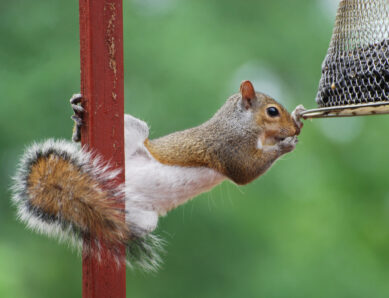What drives you to do remarkable things?
The answer came to me early yesterday morning, while sitting in my minivan, in a remote part of the Sussex countryside.
It was still dark outside, and the van rocked on its axles as the rain lashed against the sides, carried on heavy gusts of a chilly autumn wind. My family were still tucked up warmly in bed.
It briefly occurred to me that the sensible option would be to turn the van around and head home. After a moment’s reflection, I pulled on my cap, grabbed my torch and headed out into the storm; my dogs racing ahead into the gloom – wild with excitement at the prospect of another morning run.
I was driven to this ridiculous, but remarkable, act (as I am each morning), by my passion for the relatively little-known sport of dog agility. What started as a hobby eight years ago has since become an obsession. My raison d’être.
I try not to think about how much blood, sweat and tears (not to mention cold, hard cash) I’ve invested over the years, but when I’m in the ring navigating a course in perfect synchronicity with one of my dogs, time stands still and I enter a perfect state of flow.
My passion for the sport is what gets me up and out, whatever the weather – so that my dogs and I can be fit for competition. It is what helps me to shrug off the failures (of which there have been many) when we get eliminated for making a mistake in the ring, and it kept me going when my best dog suddenly developed a phobia for the seesaw, last year.
But what does all this have to do with work? Rather a lot, in fact. Research has shown that having a hobby can positively affect your career in many ways. Doing something you enjoy – especially something active or creative that brings you into contact with others – has obvious benefits for your health and quality of life, but that’s not all…
According to Mihály Csíkszentmihályi, the state of complete absorption that you experience while engaged in your favorite activity has a cumulative effect on your personal development. The more you experience a state of “flow,” the more you grow in emotional, cognitive and social complexity – skills that have a positive bearing on your professional life, too.
What’s more, people who pursue hobbies in their spare time are more engaged at work the following day, and much more likely to use their initiative to vigorously attack problems and develop new skills in the workplace.
Your hobbies can also be an excellent mechanism for protecting against, and recovering from, burnout. Activities that instill a sense of mastery and learning significantly enhance recovery from fatigue and stress brought on by a demanding day at work – especially if they are unrelated to your job and include elements of relaxation, mastery and control.
So, if you want to get the best from your team, find out what they get up to after work, and support their pastimes. And if you want to get the best from yourself, figure out what drives you to do remarkable things, and make time for your passion – even on those dark winter days when you’re feeling tired and low.
In the meantime, I’ll be watching the skies and hoping for a break in the weather!
Question: What remarkable (or ridiculous) things do you do in pursuit of your hobby?




Comments
Yolande Conradie says
10 years agoI've always found the state of "flow" interesting (even though I didn't know this term 'flow'). Becoming completely absorbed in something is a remarkable feeling - especially if you realize that hours have passed and it feels like you just started.
I will also get up at ridiculous hours in ridiculous weather to pursue what makes me happy. I'll pretend not to hear my phone ring (blush). I've even pretended not to be home! (double blush) At that moment I just don't want to break the 'flow' of things! So what I do is really more ridiculous than remarkable.
Curious to hear what others do...
Jess says
10 years agoWhat if your work is your hobby?
Ridiculous or remarkable?
Not possible?
Ruth Hill says
10 years agoIf your work is your hobby then you're living the dream, Jess!